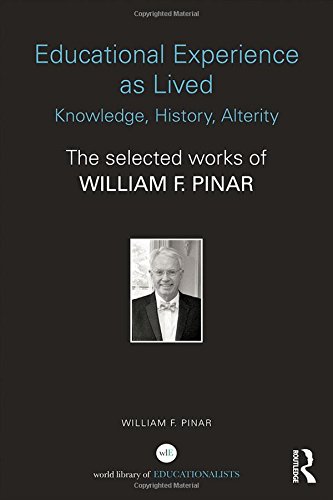

Most ebook files are in PDF format, so you can easily read them using various software such as Foxit Reader or directly on the Google Chrome browser.
Some ebook files are released by publishers in other formats such as .awz, .mobi, .epub, .fb2, etc. You may need to install specific software to read these formats on mobile/PC, such as Calibre.
Please read the tutorial at this link: https://ebookbell.com/faq
We offer FREE conversion to the popular formats you request; however, this may take some time. Therefore, right after payment, please email us, and we will try to provide the service as quickly as possible.
For some exceptional file formats or broken links (if any), please refrain from opening any disputes. Instead, email us first, and we will try to assist within a maximum of 6 hours.
EbookBell Team

4.3
58 reviewsIn this volume, Pinar enacts his theory of curriculum, detailing the relations among knowledge, history, and alterity. The introduction is Pinar’s intellectual life history, naming the contributions he has made to understanding educational experience. Study is the center of educational experience, as he demonstrates in the opening chapter. The alterity of educational experience is evident in his conceptions of disciplinarity and internationalization, interrelated projects of historicization, dialogical encounter, and recontextualization. By reactivating the past, not by instrumentalizing the present, we can find the future, explicated in his studies of the Eight-Year Study, the Tyler Rationale, and the gendering and racialization of U.S. school reform. The interrelation of race and gender is emphasized in the chapters on Ida B. Wells and Jane Addams. The technologization of education is critiqued through analysis of the achievements of George Grant and Pier Paolo Pasolini. The educational project of subjective and social reconstruction is explored through study of Musil’s essayism, a genre that corrects the problems accompanying ethnography and created by identity politics.